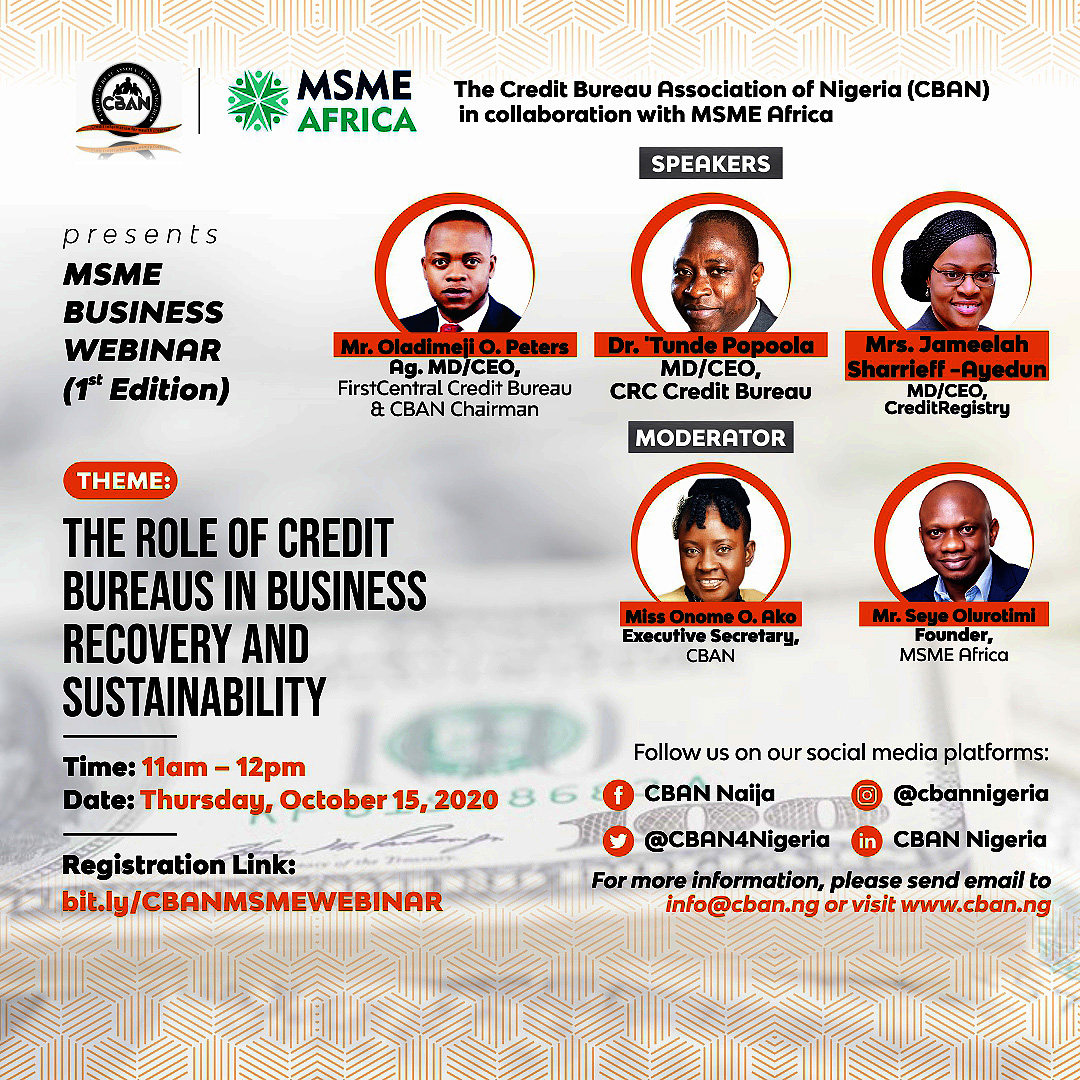Oluseye Awojobi, registrar of the Chartered Institute of Bankers of Nigeria (CIBN), has stated that the importance of financial inclusion in promoting MSME growth cannot be overemphasized.
He said this yesterday during a virtual conference held by the Credit Bureau Association of Nigeria (CBAN) and the Chartered Institute of Bankers of Nigeria (CIBN).
Director of E-Learning and Development at CIBN, Mr. Babatunde Apena, who represented Awojobi at the conference, stated that the conference’s theme was intended to spur an extensive discussion on the effects of access to Micro, Small, and Medium Enterprises (MSMEs).
He added that the spike in financial inclusion had been a long-standing concern with particular implications for economic development and that the topic was also intended to explore strategic methods that could enhance company financing through credit reporting.
He said, “ Individuals without access to basic bank facilities are left rightly to save, manage risk, take an adventure into business and also invest among other things. Likewise businesses without access to useful and affordable financial product are less likely to expand their operations, employ more labour and generate more revenue.’’
The conference had as its theme, “Enhancing Financial Inclusion in Nigeria: Changing the Narrative.”
Financial expert Mrs. Luz Maria Salamina, who spoke at the conference, recommended banks and other financial stakeholders to seize the new opportunities given by embedded credit in order to promote financial inclusion in Nigeria.
At a stakeholder conference in Lagos, Salamina, a Lead Financial Sector Specialist for the World Bank Group and Secretariat of the International Committee on Credit Reporting, offered the counsel.
“In Nigeria, embedded credit has supplied already an estimated N278 billion or $689 million as of 2021 and it is estimated that the demand for embedded credit in Nigeria will be N900 billion ($2.2 billion). You can see what the most popular embedded credit issued already have offered Nigeria –the Buy now Pay later which is the most popular one, Merchant Cash Advances, Vehicle Finance, Trade Finance, Inventory Finance and BNPL,’’ she said.
Dr. Jameelah Sharrief-Ayedun, the head of CIBAN, said that although there had been some progress in the number of people opening accounts, Nigeria was still far from meeting its aim of achieving 80% financial inclusion.
“The virtual gathering today has demonstrated our vision of ensuring that financial inclusion is promoted in Nigeria which will subsequently stimulate a stronger economy for all stakeholders. Nigeria has seen a proof in the number of people opening account, people taking out loans from one and even several financial institutions and the influx of Fintech apps. More than ever before, we are witnessing a level of progress being made in the financial sector,’’ he said.










